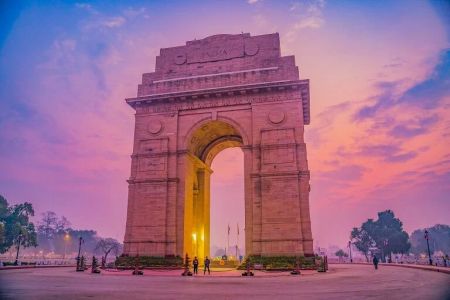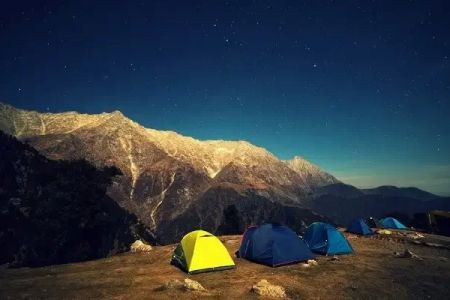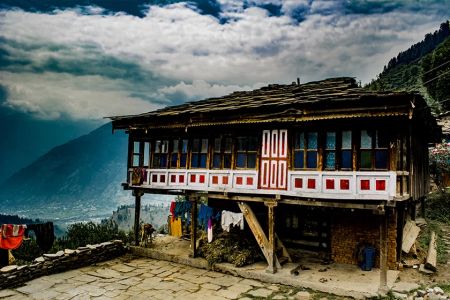How to Visit India’s UNESCO World Heritage Sites - Explore Iconic Landmarks
1. Why UNESCO World Heritage Sites in India Matter
India is home to 40 UNESCO World Heritage Sites, each of which holds historical, cultural, or natural significance. These sites span across the country, offering travelers a chance to explore ancient ruins, majestic palaces, stunning temples, and breathtaking natural landscapes. Visiting these sites not only provides a unique opportunity to witness India’s rich heritage but also helps preserve these remarkable landmarks for future generations.
UNESCO’s World Heritage list aims to protect and promote sites of exceptional cultural and natural value. By visiting these sites, you contribute to the preservation of India's legacy while experiencing the diverse history and beauty of the country. Whether you are a history enthusiast, nature lover, or someone seeking to connect with India’s spiritual traditions, these UNESCO sites provide something for everyone.
2. Top UNESCO World Heritage Sites to Visit in India
India offers an array of UNESCO World Heritage Sites, each showcasing a different facet of the country's incredible history and natural beauty. Here are some of the must-visit sites:
2.1. Taj Mahal, Agra
The Taj Mahal is perhaps the most iconic of all UNESCO World Heritage Sites in India. This white marble mausoleum, built by Emperor Shah Jahan in memory of his wife Mumtaz Mahal, is a symbol of eternal love. A visit to the Taj Mahal allows you to marvel at the intricate craftsmanship and breathtaking symmetry of this architectural masterpiece.
2.2. Qutub Minar, Delhi
The Qutub Minar in Delhi is the tallest brick minaret in the world, standing at 73 meters tall. This towering structure is a fine example of Indo-Islamic Afghan architecture and offers stunning views of the surrounding area. It’s a perfect blend of history, art, and engineering, making it a must-see for history lovers and architecture enthusiasts alike.
2.3. Red Fort, Delhi
The Red Fort, also located in Delhi, is an imposing symbol of India's Mughal era. Built in the 17th century, the fort’s massive walls and stunning architecture provide insight into the grandeur of the Mughal Empire. A visit to the Red Fort takes you on a journey through India’s rich royal history.
2.4. Ajanta and Ellora Caves, Maharashtra
The Ajanta and Ellora Caves in Maharashtra are an extraordinary collection of rock-cut Buddhist, Jain, and Hindu temples and monasteries. These caves are home to intricate murals and sculptures that offer a glimpse into the spiritual practices of ancient India. They are considered one of the finest examples of ancient Indian art and architecture.
3. How to Plan Your Visit to These Iconic Sites
Visiting India’s UNESCO World Heritage Sites requires a bit of planning to ensure that you make the most of your trip. Here are some tips to help you plan your visit:
3.1. Choose Your Route Wisely
India is a vast country, so it’s essential to choose a route that allows you to visit multiple UNESCO sites efficiently. Consider focusing on one region at a time to avoid excessive travel time. For instance, you could start with the Golden Triangle (Delhi, Agra, and Jaipur) to see the Taj Mahal, Qutub Minar, and other nearby heritage sites.
3.2. Best Time to Visit
The best time to visit India is during the cooler months, from October to March. This is particularly important when visiting outdoor sites like the Taj Mahal or Red Fort, where the weather can be extremely hot and uncomfortable in the summer months.
3.3. Local Tours and Guides
While many UNESCO World Heritage Sites are easily accessible, it’s highly recommended to hire local guides who can provide historical context and insights into the significance of the site. Many tour companies offer guided tours that allow you to skip the lines and learn more about the site’s rich history.
4. Real-Life Travel Experiences to UNESCO Sites
Traveling to India’s UNESCO World Heritage Sites is a transformative experience. Many travelers have shared how these visits have profoundly impacted them. For instance, a traveler visiting the Taj Mahal described feeling overwhelmed by the monument’s sheer beauty and the love it represents. Standing before this world wonder, they felt connected to a piece of history that transcends time.
Another traveler recounts their experience at the Ajanta and Ellora Caves, where they felt immersed in the ancient spirituality that pervades the site. The serene atmosphere and detailed artwork left a lasting impression, offering a glimpse into India’s rich spiritual and artistic legacy.
5. Why Choose Travel India One for Your UNESCO Tour
If you’re planning to visit India’s UNESCO World Heritage Sites, consider choosing Travel India One to help you organize the perfect trip. With years of experience and a deep understanding of India’s culture and history, Travel India One provides curated tours to these iconic landmarks.
They offer personalized itineraries, local guides, and the convenience of tailored tours that allow you to focus on the experience, rather than the logistics. Whether you're traveling solo, with family, or in a group, Travel India One ensures that your visit to India's UNESCO sites is both enriching and unforgettable.
Ready to explore India’s UNESCO World Heritage Sites? Visit Travel India One to book your tour today and embark on a journey through India’s rich heritage and culture!










